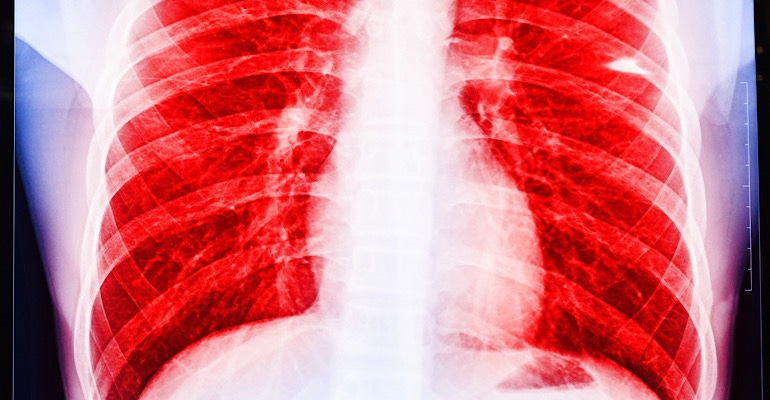Thermo Fisher & AstraZenca to Develop CDx for Lung Cancer
The companies will use Thermo Fisher’s sequencing platform to create a companion diagnostic that will deliver results in as little as 24 hours.
January 24, 2023

Thermo Fisher Scientific has announced that it is working with AstraZeneca to develop a solid tissue and blood-based companion diagnostic (CDx) test for the oncology drug, Tagrisso (osimertinib). The CDx is meant to identify patients with non-small-cell lung cancer (NSCLC) who may be eligible for treatment with Tagrisso by identifying tumors that exhibit epidermal growth factor receptor (EGFR) alterations, including exon 21 L858R mutations, exon 19 deletions, or T790M mutations.
The collaboration will leverage Thermo Fisher Scientific’s Oncomine Dx Express Test on the Genexus Dx System, a fully integrated next-generation sequencing (NGS) platform. The test and the system, which are currently available as CE-IVD only, feature an automated specimen-to-report workflow that delivers results in as little as 24 hours.
According to Thermo Fisher Scientific, NGS-based CDx testing can detect multiple biomarkers from a single test, helping to match patients with an appropriate targeted therapy more quickly. The need for faster diagnostic turnaround times was reinforced by research presented at ASCO 2022 that found patients with advanced-stage NSCLC had better outcomes, including survival rates, when molecular testing results were available early enough to inform initial treatment decisions.
“As part of our ongoing partnership with AstraZeneca, today’s announcement will help bring targeted oncology treatments to more patients in need of new care options,” said Garret Hampton, president of clinical next-generation sequencing and oncology at Thermo Fisher Scientific, in prepared remarks. “By leveraging the Genexus Dx System’s unprecedented turnaround time, we can help ensure molecular testing results are more readily available to inform vital treatment decisions.”
Tagrisso is currently approved in numerous countries and regions around the world for the treatment of patients with locally advanced or metastatic EGFR T790M mutation-positive NSCLC; the first-line treatment of patients with locally advanced or metastatic NSCLC whose tumors have EGFR exon 19 deletions or exon 21 (L858R) substitution mutations; and the adjuvant treatment after tumor resection in patients with NSCLC whose tumors have EGFR exon 19 deletions or exon 21 (L858R) substitution mutations.
About the Author(s)
You May Also Like




.png?width=300&auto=webp&quality=80&disable=upscale)